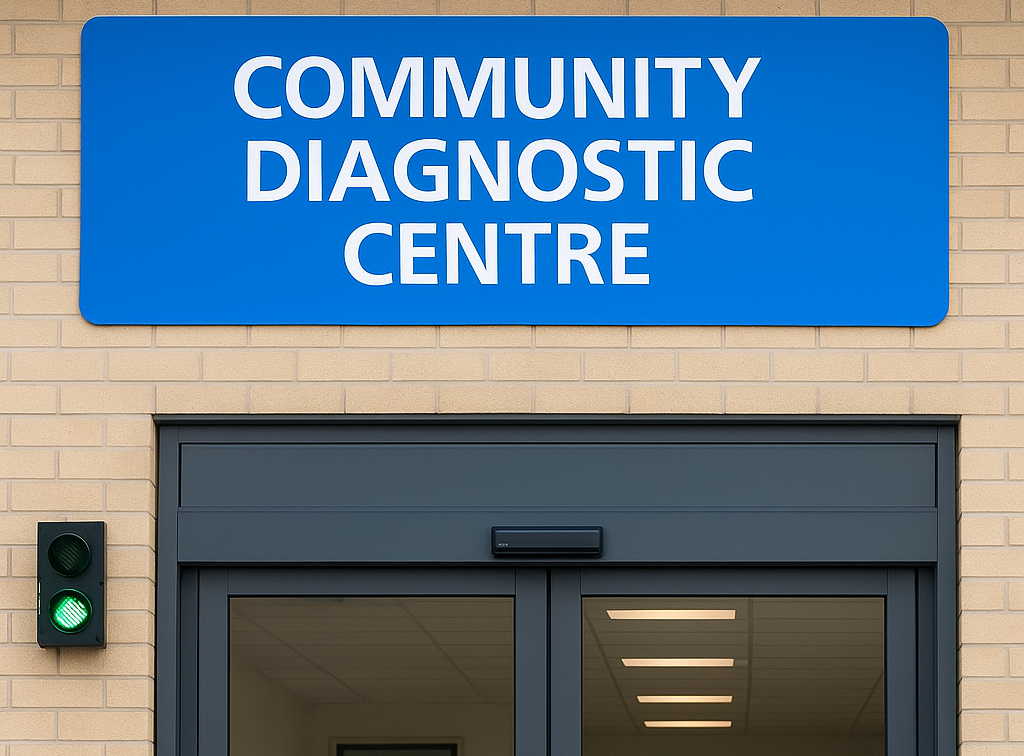Diagnosing the Delay: Rethinking NHS Diagnostics and Tackling Neurodevelopmental Backlogs
22 Jul 2025 |
| Share with

The NHS is facing a diagnostics reckoning. Whether it’s imaging, pathology, or assessments for neurodevelopmental conditions like autism and ADHD, the message is the same: demand is rising, capacity is stretched, and the consequences of delay are far-reaching.
As system leaders confront this challenge, diagnostics must be reimagined not only as a gateway to treatment, but as a strategic enabler of equity, efficiency, and patient confidence.
The Neurodevelopmental Diagnostic Crisis
In May’s NHS England Board report, performance improvements in cancer and elective recovery were rightly welcomed. But other areas, particularly children’s services, continue to raise alarm. Long waits for neurodevelopmental assessments remain a significant unresolved challenge.
ADHD and autism pathways are emblematic of a broader issue: demand has surged, but infrastructure, workforce, and commissioning models haven’t kept pace. In some areas, families wait 12–24 months for initial assessments. For children, these delays affect education, behaviour, and mental health, with lifelong consequences. For parents and carers, they erode trust and trigger further system strain.
System Consequences of Delayed Diagnosis
Delayed diagnostics ripple across the system in ways that are too often invisible:
- Escalation of needs: Without early diagnosis, patient conditions can worsen, leading to crisis presentations in urgent and emergency care (UEC) settings.
- Inequity: Those with the loudest voices or resources often access care faster. Delays disproportionately affect disadvantaged groups.
- Inefficient use of specialist time: Clinical time is lost managing downstream effects of undiagnosed conditions, rather than intervening early.
The May 2025 Board papers reinforce the point: improving access is not just about volume. It’s about pathway redesign, smarter commissioning, and embracing innovative delivery models that reflect how patients live, not just how systems operate.
Diagnostics: The Broader Strategic Challenge
The delays in neurodevelopmental assessments sit within a larger diagnostics challenge. While recent performance has improved, 2.51 million tests delivered in January 2025 alone, the system still faces a six-week breach rate of 18% and wide variation in access.
The rollout of Community Diagnostic Centres (CDCs) and the Federated Data Platform promises progress. But digital tools and estates investment alone won’t fix the deeper issues. Diagnostics remains heavily dependent on workforce availability, streamlined triage processes, and clinical oversight. Where these are lacking, investment stalls.
Moreover, diagnostics is rarely treated as a strategic function. It is often commissioned and funded in fragmented ways, with poor alignment across community, mental health, and acute settings. That lack of cohesion undercuts the NHS’s broader ambition to shift care closer to home.
What Needs to Happen
Solving these delays is not about working harder, it’s about working differently.
- Integrated Diagnostics Pathways: Neurodevelopmental and general diagnostics need clear, vertically integrated pathways across providers. ICBs should coordinate efforts to reduce duplication and standardise triage.
- Cross-sector Collaboration: In neurodevelopmental care, joint commissioning between health and local authority education services is essential. Early years provision, school input, and health assessments must align.
- Pathway Partnering: The NHS does not need to do this alone. Where internal capacity is stretched, high-quality partners can be deployed to deliver assessment services and reduce backlog risk, especially in paediatrics.
- Data-led Prioritisation: With national platforms like the Federated Data Platform and increased NHS App functionality, the system has an opportunity to understand demand, track delays, and prioritise intelligently.
- Workforce Innovation: National workforce leaver trends, as explored in previous Brief editions, must be tackled head-on in diagnostics. We need flexible, multi-skilled teams that can operate across physical and mental health assessments.
Where ProMedical Can Help
At ProMedical, we support the NHS through:
- Insourced assessment services to clear diagnostic backlogs without disrupting in-house operations.
- Pathway design expertise that helps ICBs and providers rethink triage and flow.
- Specialist workforce solutions that align with national workforce recovery goals and deliver immediate capacity where it counts.
Final Word – From Altin Biba, MBA, Chief Executive of ProMedical
Diagnostics is not just about throughput, it’s about timely answers, reduced anxiety, and early intervention. The longer patients wait for clarity, the more system pressure builds downstream. The neurodevelopmental delays outlined in the latest NHS Board reports aren’t just performance metrics, they’re stories of children waiting to be seen, parents navigating a maze, and professionals doing more with less.
The solution isn’t more pressure and unsustainable targets, it’s smarter design, deeper alignment, and targeted support.
At ProMedical, we remain focused on providing solutions where they matter most. If the themes in this month’s blog resonate with your organisation, we’d welcome a quiet, purposeful conversation.
References
- NHS England Board Papers, May 2025 – Integrated Performance Report
- NHS England. (2024). Delivery plan for recovering access to primary care
- National Autistic Society. (2024). Autism diagnosis waiting times
- Royal College of Paediatrics and Child Health (2023). State of Child Health
- NHS England. (2023). Community Diagnostic Centres: Progress and Performance Update
- House of Commons Health and Social Care Committee (2022). The treatment of autistic people and people with learning disabilities
- Office for National Statistics (2023). NHS workforce retention data
Leave a Comment
You must be logged in to post a comment.

22 Jul 2025 | Leave a comment
Share with socials